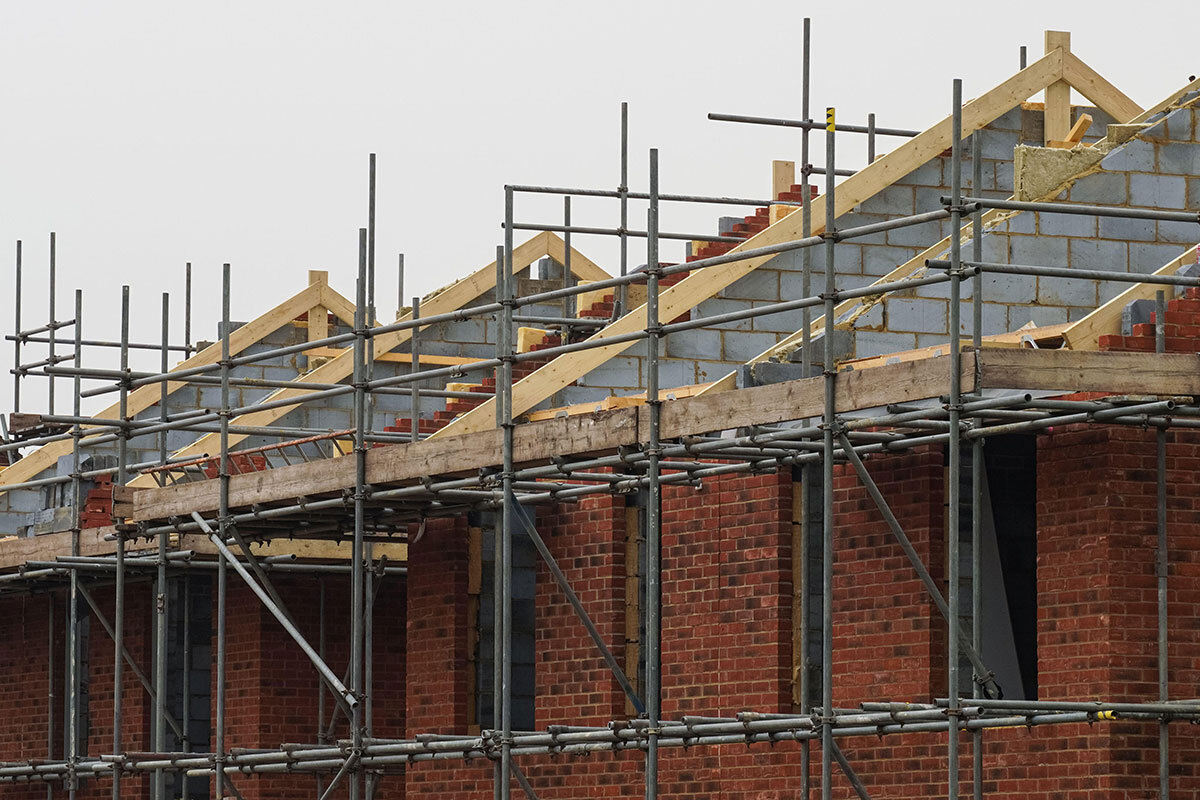You are viewing 1 of your 1 free articles
CMA to investigate eight house builders over suspected information-sharing
The Competition and Markets Authority (CMA) has launched an investigation into eight house builders after it found evidence that some developers may be sharing commercially sensitive information.
The competition watchdog will seek to determine whether the country’s largest house builders have broken the Competition Act 1998 by sharing information with their competitors to influence the build-out of sites and the price of new homes.
Barratt, Bellway, Berkeley, Bloor Homes, Persimmon, Redrow, Taylor Wimpey and Vistry will be subject to the investigation.
Although the watchdog does not consider such sharing of information to be “one of the main factors” in the UK’s under-delivery of homes, it was concerned that it may “weaken competition” in the market.
It is understood that the possible data-sharing includes sales prices and discounts that are not publicly available, which could influence build-out rates and prices in local markets.
People who are found to have infringed the Competition Act can be hit with hefty penalties, including a fine of up to 10% of company turnover.
There is no statutory time limit on an investigation and it will likely take several months to complete, Inside Housing understands.
The investigation came after the CMA published its final report on the housebuilding market in Britain, which interrogated the “persistent under-delivery of new homes”.
The report, which followed a year-long study commissioned by housing secretary Michael Gove, concluded that the UK’s “complex and unpredictable” planning system was responsible for sluggish housebuilding, along with a reliance on “speculative private development” that did not meet the affordable housing needs of different communities.
Around 60% of all houses built between 2021 and 2022 were delivered by speculative private development, the watchdog said. This is when builders buy land, secure planning permission and construct homes without knowing in advance who will buy them or for how much.
This way of building has given developers “flexibility” to respond to changes in the market, but the country’s “reliance on this model” has seen the gap “widen considerably” between what the market will deliver and what communities need. Private builders meet “demand” – the number of people who can afford to buy a house at market rate – rather than the underlying housing need of an area.
The report found that private developers “produce houses at a rate at which they can be sold without needing to reduce their prices”, rather than diversifying the types and numbers of homes they build – for example by providing more affordable housing.
Planning systems are producing “unpredictable results” and often take a “protracted” amount of time for builders to navigate before construction can start. Many planning departments are under-resourced, while some do not have up-to-date local plans or clear targets and incentives to deliver the numbers of homes needed, the report noted.
Planners are also required to consult with a wide range of groups who often hold up projects by submitting “holding responses or late feedback” to consultations on proposed developments, it said. In addition, a complex planning system disproportionately disadvantages smaller and medium-sized developers that do not have the lawyers, consultants and expertise to navigate it efficiently.
Another focus of the report was the practice of landbanking, where developers buy land and do not develop it quickly. The CMA assessed more than one million plots of land held by house builders and found that the practice of banking land was high, but in line with the time it takes to get things through the planning system and maintain a pipeline of sites being built.
Landbanking was “more a symptom of the issues identified with the complex planning system and speculative private development”, the CMA said, rather than a primary reason for the shortage of new homes.
The study also found concerns about estate management charges – where homeowners can face “high and unclear” charges for the management of roads, drainage and green spaces – and the quality of some new build housing after an increase in reported snagging issues over the past 10 years. There are weak incentives for house builders to compete on quality, the report suggested, while routes to redress for homeowners were uncertain and difficult.
The report recommended that councils require developers to adopt amenities on all new housing estates; government introduces enhanced consumer protections for owners on existing privately managed estates; and a New Homes Ombudsman is established “as soon as possible”.
Proposed planning reforms included: ensuring local authorities put in place local plans and are guided by clear, consistent targets; streamlining the planning systems to significantly increase the ability of house builders to begin work on new projects sooner, while not watering down protections such as for the local environment; improving the capacity of council planning departments; and incentivising builders to diversify the tenures and types of homes delivered.
Sarah Cardell, chief executive of the CMA, said that housebuilding in Britain “needs significant intervention” so that enough good-quality homes are delivered.
With a “streamlining of the planning system and increased consumer protections”, she said, “we would expect to see many more homes built each year, helping make homes more affordable”.
But she added that, even then, “further action may be required to deliver the number of homes Great Britain needs”.
On the investigation into suspected sharing of information, Ms Cardell said: “While this issue is not one of the main drivers of the problems we’ve highlighted in our report, it is important we tackle anti-competitive behaviour if we find it.”
A Bloor Homes spokesperson said: “We have been transparent with the CMA throughout the year-long study and are currently reviewing the findings. We will continue to work with them throughout the course of the investigation.”
A Redrow spokesperson said: “Redrow has fully co-operated with the CMA throughout its market study. We remain focused on the delivery of high-quality and much-needed new homes as part of our work to create thriving communities across England and Wales. We will continue to work with the CMA.”
A Bellway spokesperson said: “We are reviewing the CMA’s report. Bellway has engaged and co-operated fully with the CMA throughout its market study – and will continue to do so.
“Bellway is committed to exceptional customer care. We remain focused on the delivery of high-quality new homes that meet local demand and enhance the communities we build in as we work to increase the supply of UK housing.”
A Taylor Wimpey spokesperson said: “The CMA’s report identifies proposed changes to the market that we welcome, particularly around the planning process and recognition that housebuilders do not landbank. Taylor Wimpey notes the investigation opened today and we will cooperate fully with the CMA in relation to this.”
Berkeley Group declined to comment.
Barratt, Persimmon and Vistry were also approached for a response.
Sign up for our development and finance newsletter
Already have an account? Click here to manage your newsletters











